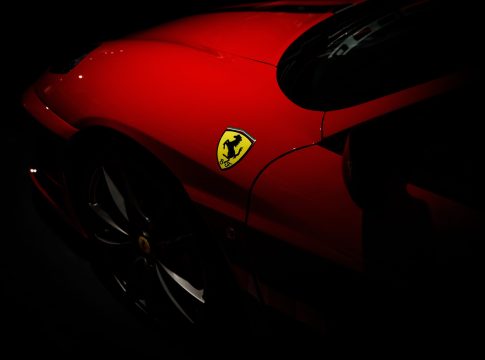Ferrari Delays Electric Dreams: What This Means for Luxury EVs
The Shifting Landscape of Luxury EVs
Ferrari, the epitome of high-performance luxury automobiles, is hitting pause on its ambitious electric vehicle (EV) plans. The iconic brand has decided to postpone the launch of its second electric model until at least 2028, a significant delay that underscores the struggles facing traditional luxury carmakers in the electrified era.
Lack of Demand for High-Performance EVs
Sources within Ferrari indicate that interest among its core customers for electric supercars is alarmingly low. Described as “non-existent,” this demand highlights a crucial challenge: how does a storied brand stay true to its combustion-powered heritage while embracing a future defined by silent, battery-operated drivetrains?
The initial plan for the second EV was to release it by late 2026; however, with current sentiment suggesting a reluctance to shift from traditional fuel, Ferrari is recalibrating its strategy. The postponement comes as no surprise amidst a broader trend among luxury auto manufacturers—names like Maserati and Lamborghini are also reassessing their electric ambitions.
First EV Still in the Pipeline
While enthusiasts may be disappointed by the delay, Ferrari’s first electric vehicle—a collaboration with renowned designer Jony Ive—is still on track for a 2026 rollout, preceded by an expected unveiling in spring 2025. This elite model is poised to be a limited-edition offering, with an estimated price upwards of $500,000, catering primarily to collectors rather than the average sports car buyer.
In contrast, the second EV was intended to appeal to a broader market, aiming to produce between 5,000 to 6,000 units over five years. Whether that vision can still materialize amid changing consumer attitudes is now in question.
The Emotional Disconnect
One of the most significant hurdles to Ferrari’s electric ambitions is emotional rather than technical. The visceral thrill of hearing a powerful engine roar is something that many brand loyalists aren’t ready to sacrifice. This sentiment resonates across the luxury sports car sector, with executives like Aston Martin’s Lawrence Stroll noting that customers still yearn for the “sounds and smells” of traditional sports cars.
Giving now a bit of breathing room, Ferrari can also continue to refine its proprietary battery technology and powertrains. In a competitive landscape teeming with luxury EV options, this innovation could be a lifeline for maintaining its illustrious reputation.
A Wider Industry Dilemma
Ferrari isn’t alone in this predicament. Other high-end automakers are facing similar pushbacks. Maserati has shelved its electric MC20 due to weak market interest, and Porsche has reduced production forecasts for its EV line. Even Lamborghini has postponed its first electric model until 2029.
As Ferrari prepares to unveil its updated long-term strategy to investors on October 9, the delays raise questions. Will they adapt to a future that seems increasingly electrified, or will they hold tightly to the roaring engines of the past? Only time will tell, but for now, the prized Ferrari experience remains grounded in the beloved combustion engine.

Writes about personal finance, side hustles, gadgets, and tech innovation.
Bio: Priya specializes in making complex financial and tech topics easy to digest, with experience in fintech and consumer reviews.

